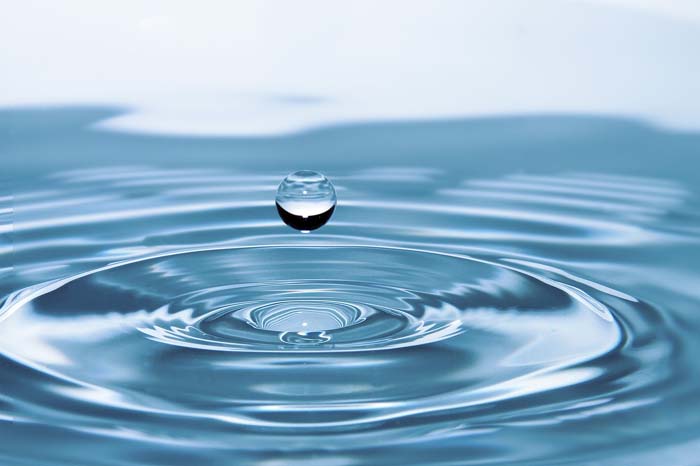
Among the most efficient water filtration methods, reverse osmosis water filtration systems work by forcing water through a very tiny filter material instead of carbon or chemical filters that use specific materials to target or draw the contaminants in the water.
Nevertheless, there are benefits and drawbacks to using reverse osmosis water filtration systems as a water filtering method. To assist you in making a well-informed decision regarding the suitability of a reverse osmosis system for your house, this article will discuss the pros and cons of such systems.
 Here are the pros and cons of reverse osmosis water filtration systems
Here are the pros and cons of reverse osmosis water filtration systems
Pros of reverse osmosis water filtration systems
With their many benefits, reverse osmosis water filtration systems stand out as an excellent method for water purification and are a popular choice for both homes and industries.
Removing contaminants effectively
The remarkable ability of reverse osmosis water filtration systems to remove contaminants is one of their main advantages. The procedure uses a semipermeable membrane that efficiently removes numerous contaminants, such as pesticides, nitrates, lead, fluoride, sulfates, arsenic, and chlorine. This will guarantee that you will always consume water free of harmful contaminants.
Improved odor and taste
Reverse osmosis filtration systems improve water’s taste by filtering out most impurities. For instance, fluoride and chlorine are commonly added to municipal water supplies for water filtration. Regrettably, they impart an off-putting taste to the water. By removing these chemicals, a reverse osmosis water filter restores the water’s original, clean taste.
Preserves essential minerals
Reverse osmosis water filtration systems are able to leave helpful minerals in the water while selectively removing harmful chemicals, unlike other filtration technologies that remove both important minerals and impurities. This guarantees that the minerals consumed are in a more balanced form.
Space efficiency
Because of their small size, reverse osmosis water filtration systems do not require much room during installation. Under-sink models are a great way to take advantage of that extra space under your sink without sacrificing style.
Energy efficiency
Generally, reverse osmosis filtering uses less energy than other water-purifying technologies. It’s an economical and environmentally friendly option because it does not use a lot of energy when running.
Great performance
Over time, reverse osmosis water filtration systems consistently and reliably perform. They may keep producing high-quality water with little to no loss in efficiency as long as they get proper maintenance.
No worries about maintenance
A reverse osmosis system has a high initial cost. After covering the initial costs, the maintenance costs are minimal. The overall cost per gallon is also relatively inexpensive. This becomes much more apparent when contrasted with the expense of buying water in bottles. The system can go without saying, but it can be pricey when it does need maintenance. Some things to expect from maintenance are:
- Semipermeable membranes need replacement every two to three years.
- Once a year, change out the filters.
- Your reverse osmosis system needs annual cleanup.
Enhances how your food tastes
All you do when you cook combines various chemical substances and reactions! What comes out of it is a tasty meal. The use of reverse osmosis water filtration systems improves the flavor of food because they eliminate impurities like fluoride and chlorine.
The cons of reverse osmosis water filtration systems
Despite the many benefits of reverse osmosis filtering, it is important to consider the following drawbacks:
Generating wastewater
Unfortunately, reverse osmosis water filtration systems lose a lot of water. A portion of the water is removed as wastewater during the filtration process. Particularly in regions with scarce water, this can lead to considerable water loss. On the other hand, some newer models use permeate pumps or other water-saving technologies to reduce water waste.
Slow filtration rate
When you compare this method to other filtration technologies, the filtration rate of reverse osmosis water filtration systems can be slow. The process slows the flow velocity since water must travel through the semipermeable barrier. This might be a pain when people need filtered water or when filling bigger containers at once. The decreased flow rate can be compensated for using built-in storage tanks in some systems.
The price of the initial installation
The initial investment in RO filters could be more than other water filtering techniques. Nonetheless, reverse osmosis water filtration systems are now available on subscription from a number of brands.
Decreased pH of water:
Because RO filters remove alkaline minerals, the water is typically slightly acidic. Some may prefer water with a higher pH level for specific health or nutritional needs, while this may not be a big deal for the majority of people. To fix this, you can add remineralization cartridges or pH-neutralization filters to the system.
Regular maintenance
Regular maintenance, including filter replacements, is essential for reverse osmosis water filtration systems, as with any filtration system. Some might find this a little bothersome, but it guarantees it will continue to work.
 Removes essential minerals
Removes essential minerals
Since RO systems filter out so much water, they also get rid of all the beneficial minerals. In simpler terms, the filtration process eliminates salt, magnesium, and calcium. These are vital minerals the body needs for normal function.
Conclusion
A reverse osmosis system is a great health investment if you are worried about the water quality of your faucet. Having one in your home is like having your very own water purifier. Looking at the benefits and drawbacks of RO filters side by side, you’ll see that the pros are far more significant.
Reverse osmosis water filtration systems provide an all-inclusive answer to the problem of getting potable water that is free of contaminants. Because of its effectiveness, low maintenance requirements, and low energy consumption, reverse osmosis is the best method for people looking for a dependable water purifier.
